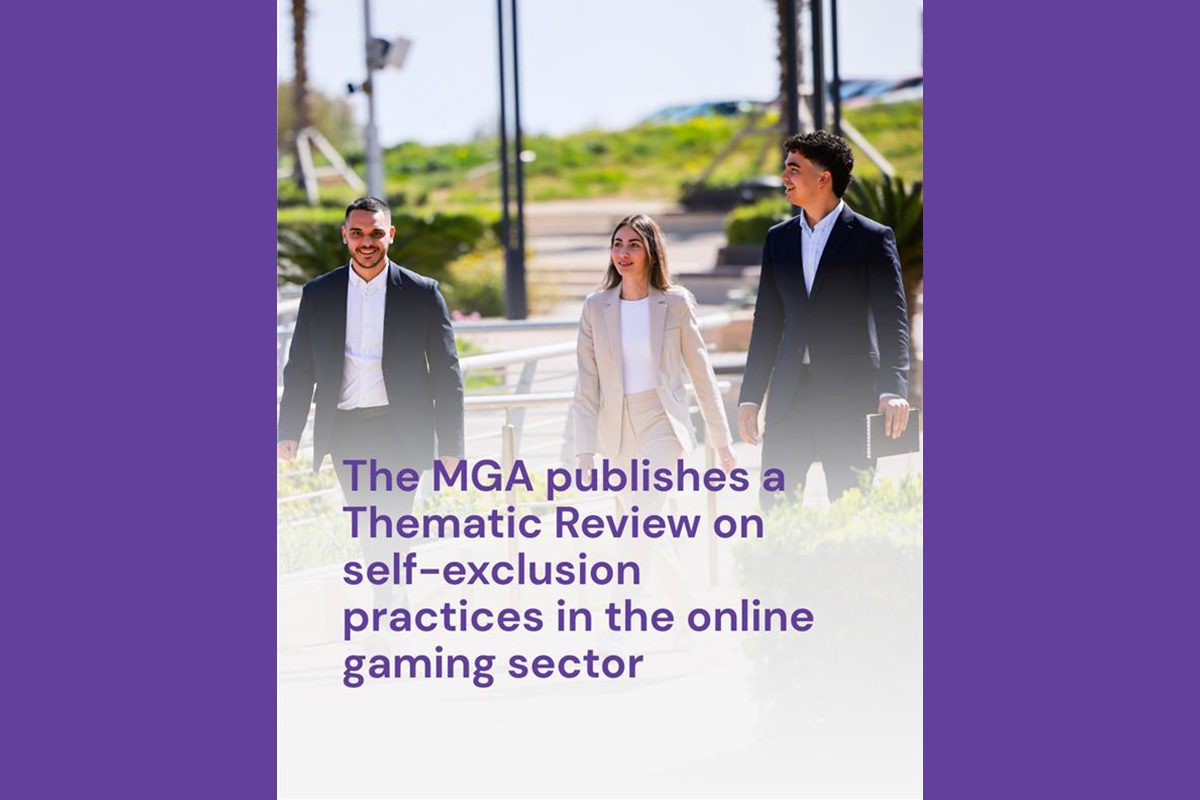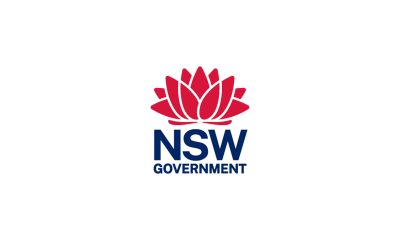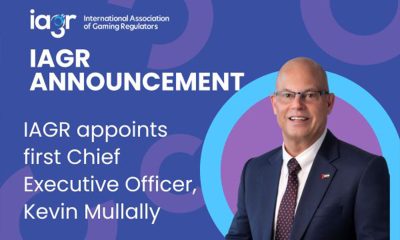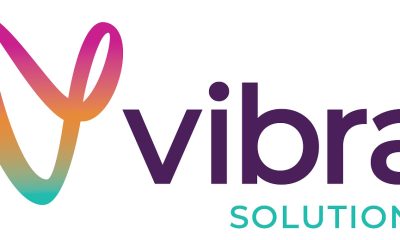Compliance Updates
Navigating New Frontiers: AI’s Role in Reinventing iGaming Compliance

By Paul Addicott-Evans, Managing Director for Products at ComplianceOne Group
In high-stakes world of iGaming, regulatory compliance is not just a box to be checked – it is the bedrock upon which the industry’s integrity and customer trust are built. As we navigate this complex landscape, the emergence of Artificial Intelligence (AI), especially through Large Language Models (LLMs) like ChatGPT, promises a revolution in how we approach regulatory processes. Yet, with great power comes great responsibility, and the integration of AI in compliance raises crucial questions about the verifiability and accuracy of its data inputs.
The Data Verification Dilemma
At the core of this AI-driven transformation in iGaming compliance is ChatGPT, a marvel of modern technology powered by a sophisticated Large Language Model. ChatGPT opened the world’s eyes to the possibilities of AI, whilst simultaneously creating a major question with wide-spread adoption: Can we trust it?
Despite its impressive capabilities, a fundamental challenge persists: verifying the accuracy and currency of the information it provides. In many walks of life, not least the ever-changing regulatory environment of iGaming, relying on AI tools without verifiable data sources could lead to non-compliance, legal challenges, and potentially financial penalties.
This dilemma is intensified by the dynamic nature of iGaming regulations, which can vary significantly across jurisdictions and are subject to frequent updates. Non-compliance can be extremely costly, so ensuring that AI tools are not only informed by but also aligned with the latest legal standards is paramount. This calls for a robust framework where AI tools are continuously fed with up-to-date and verified regulatory data, and their outputs are regularly audited for accuracy and compliance.
The science bit…
How do we approach this problem? The availability of large language models is now almost a commodity. The technology is available for everyone to use. However, when faced with such an important problem as reliability and verifiability, there is a need to weave supporting technologies into the AI-framework. This is where vector embeddings come into play, acting as a bridge between raw data and the AI’s ability to understand and verify it.
Imagine vector embeddings as a vast library, not of books, but of words, phrases, and concepts, each with its own unique location. This library is created by a neural network, a type of AI, which reads and understands vast amounts of text, then organizes this information into a map.
Each word or phrase is placed precisely, so that words with similar meanings are neighbours.
For iGaming compliance, this library becomes invaluable. When AI uses vector embeddings, it’s like consulting this map to understand not just words, but the context and meaning behind them. This is crucial for verifying vast, complex regulatory information.
In essence, vector embeddings allow AI to comprehend and verify information much like an expert human would, but with the speed and accuracy that only a machine can offer. This boosts the reliability of AI in iGaming compliance, ensuring that the operators get accurate and up-to-date information, crucial for staying within regulatory boundaries.
AI’s Edge in iGaming Compliance
The use of AI in iGaming compliance, when done correctly, can offers a suite of advantages:
- Enhanced Precision and Efficiency: AI’s ability to swiftly and accurately synthesize regulatory information ensures that operators are always in step with the latest compliance requirements. For instance, an AI tool could analyse recent amendments to anti-money laundering laws across different jurisdictions within minutes, a task that would take humans significantly longer.
- Customized Regulatory Insights: AI can offer bespoke guidance, adapting to the unique operational and geographical nuances of each iGaming operator. An example of this is how AI tools can provide tailored advice to operators based on specific games offered or markets targeted, considering the unique regulatory landscape of each area.
- Automated Compliance Oversight: Continuous AI surveillance of iGaming operations guarantees adherence to regulatory standards, proactively identifying and rectifying instances of non-compliance. This could include real-time monitoring of player interactions to ensure responsible gaming practices are maintained.
Looking Ahead
The journey of integrating AI into iGaming compliance is fraught with challenges, yet the potential rewards are substantial. By anchoring AI in the principles of data verifiability and source transparency, we can redefine how the iGaming industry navigates its regulatory maze – a shift not just in technology but in establishing a new era of trust and reliability.
_______________________________________________________________________________
Introducing IntelligentOne AI
At Complitech, we stand at the forefront of this exciting frontier with OneAI. Developed as part of the comprehensive Complitech database of global regulations, this groundbreaking AI product is poised to redefine iGaming compliance. OneAI distinguishes itself by providing current, accurate data, free from the common ‘hallucinations’ of LLMs, thereby offering responses to regulatory inquiries that are not just swift, but also dependable and verifiable.
Take the example of a Games studio assessing the impact of Germany’s regulations on slot games, particularly concerning the maximum bet limit and the mandatory delay between spins.
Using OneAI, the studio inputs a query about slot regulations in Germany. The AI tool quickly processes this request, providing a detailed analysis of the current German regulations on slot games. It highlights that the maximum bet per spin is capped at €1 and that there is a required minimum interval of 5 seconds between spins. This information is directly linked to the relevant sections of the German Interstate Treaty on Gambling, ensuring accuracy and verifiability.
This targeted insight allows the studio to make informed decisions about game design and offerings in the German market, ensuring compliance while optimizing their product for the new regulatory environment.
With OneAI, iGaming companies can access instant, reliable insights for complex technical compliance questions, streamlining decision-making processes. This innovative tool represents a significant leap in the application of AI in iGaming compliance, marrying the linguistic dexterity of LLMs with the robust, updated Complitech database. It heralds a new chapter in iGaming regulation, where technology not only expedites but also elevates the trustworthiness and accuracy of compliance processes. As AI continues to evolve, tools like OneAI are set to play a pivotal role in fostering a safer, more compliant, and trustworthy iGaming ecosystem.
Compliance Updates
MGA Publishes Results of Thematic Review on Self-exclusion Practices in Online Gaming Sector

The Malta Gaming Authority (MGA) has published the results of a Thematic Review on how online B2C licensees implement self‑exclusion and other responsible gambling safeguards. The Review sought to identify any systemic weaknesses and clarify regulatory expectations relating to player protection, highlighting areas performing well as well as opportunities for licensees to strengthen their practices.
The Review was carried out in 2025 following reports that some players were able to access multiple brands despite being self‑excluded due to problem gambling. It examined the real‑world performance of player protection tools across 20 licensees and 58 active URLs. A mystery shopping exercise assessed the effectiveness of self‑exclusion processes, cross‑brand account controls, and the presentation of responsible gambling protections at key points of play.
The findings presented in this document reaffirm the Authority’s ongoing commitment to safeguarding players and upholding the integrity of the online gaming sector. Overall, the Thematic Review indicates a positive level of compliance, with the majority of licensees assessed demonstrating practices that are broadly in line with regulatory expectations. At the same time, the Review highlights opportunities for further strengthening player protection measures across the sector.
The assessment outlines the specific areas where enhancements would be beneficial. These include delays in activating self‑exclusion, instances where exclusions were lifted without applying a mandatory cooling‑off period, challenges in detecting duplicate or closely matching player identity details across brands, the absence of limit‑setting prompts during registration, and incomplete information displayed within Reality Check pop‑ups. Together, these findings provide guidance where systems and processes can be enhanced to ensure player protection measures operate as intended.
The Authority has communicated the findings to the relevant licensees, each of whom has been asked to address the points raised and submit rectification plans. Follow‑up supervisory engagement will continue where necessary, including monitoring the implementation of corrective actions. This work forms part of the Authority’s broader risk‑based oversight approach, aimed at promoting higher and more consistent standards of player protection across the sector.
Through this Guidance Document, the Authority encourages all licensees to use the insights from this Review to reinforce their internal frameworks, enhance their responsible gambling controls, and continue contributing to a safer and more sustainable gaming environment.
The post MGA Publishes Results of Thematic Review on Self-exclusion Practices in Online Gaming Sector appeared first on Eastern European Gaming | Global iGaming & Tech Intelligence Hub.
Adventure One QSS
Dutch Gambling Authority Imposes Penalty on Adventure One QSS for Illegal Gambling

The Netherlands Gambling Authority (KSA) has imposed a penalty on Adventure One QSS Inc. for illegal gambling. Adventure One offers games of chance on the Dutch market under the Polymarket brand name, without a license. The KSA has called on Polymarket to cease its activities immediately. If it fails to do so, the company will be fined €420,000 per week, with a maximum of €840,000.
Polymarket has been frequently in the news in recent months, particularly regarding betting on the Dutch elections. Although Polymarket itself states that prediction markets do not fall under the category of gambling, the Netherlands Gambling Authority (KSA) has taken a different stance. After contacting the company about its illegal activities on the Dutch market, there has been no visible change, and the offering remains available. The Netherlands Gambling Authority therefore imposed this order, subject to a penalty. A turnover-related fine may also be imposed at a later date.
Ella Seijsener, director of licensing and supervision at the Netherlands Gambling Authority (KSA), said: “Prediction markets are on the rise, including in the Netherlands. These types of companies offer bets that are not permitted in our market under any circumstances, not even by license holders. Besides the social risks of these kinds of predictions (for example, the potential influence on elections), we conclude that this constitutes illegal gambling. Anyone without a KSA license has no business in our market. This also applies to these new gambling platforms.”
The post Dutch Gambling Authority Imposes Penalty on Adventure One QSS for Illegal Gambling appeared first on Eastern European Gaming | Global iGaming & Tech Intelligence Hub.
Brais Pena Chief Strategy Officer at Easygo
Stake Goes Live in Denmark Following Five-Year Licence Approval

Stake, the largest online casino and sportsbook globally, today proclaims its official entry into Denmark after obtaining a five-year online casino and sports betting license. The shift reinforces Stake’s enduring dedication to enhancing its global growth strategy.
Denmark is often seen as a regulatory success within the European online gambling scene, and Stake has now introduced its flagship, internationally recognized product to the Danish market. Players will unlock access to Stake’s top-tier casino and sportsbook, showcasing exceptional games, cutting-edge technology, and an exceptional user experience, all provided with a strong local emphasis.
Starting 1 March 2026, Stake Denmark will set up its new headquarters at Parken Stadium, the national football stadium of Denmark and the home ground for FC Copenhagen.
Peter Eugen Clausen, Managing Director at Stake Denmark, said: “Denmark has one of the most well-regulated and competitive gaming markets in Europe, and that’s exactly what makes it so exciting. With Stake’s arrival, Danish players can expect a fresh, world-class experience backed by global scale and strong local focus. We’re raising the bar in terms of product, transparency, and entertainment, and I believe increased competition from brands like Stake will only drive the market forward in a positive way.”
Brais Pena, Chief Strategy Officer at Easygo, the technology company behind Stake, said: “Denmark marks our entry into the Nordics and represents a clear win in one of Europe’s most mature and high-value markets. With each new market, our momentum continues to build as we deliver on our global expansion strategy.”
Since its inception in 2017, Stake has positioned itself as the top betting and gaming brand globally by continually presenting advanced technology and novel gaming experiences for players around the globe. Upon entering Denmark, Stake maintains its dedication to player safety and responsible gaming, guaranteeing that gambling stays enjoyable, secure, and entertaining by providing extensive tools and resources that assist customers in comprehending and monitoring their gambling behavior.
The post Stake Goes Live in Denmark Following Five-Year Licence Approval appeared first on Eastern European Gaming | Global iGaming & Tech Intelligence Hub.
-

 Amusnet6 days ago
Amusnet6 days agoWeek 7/2026 slot games releases
-

 Brino Games6 days ago
Brino Games6 days agoQTech Games integrates more creative content from Brino Games
-

 Aphrodite’s Kiss6 days ago
Aphrodite’s Kiss6 days agoLove on the Reels: Slotland Introduces “Aphrodite’s Kiss”
-

 Alex Malchenko6 days ago
Alex Malchenko6 days agoEvoplay Strengthens Canadian Presence with BetMGM Partnership
-

 3 Oaks Gaming6 days ago
3 Oaks Gaming6 days ago3 Oaks Gaming Enters Spanish Market
-

 app launch Feb 20267 days ago
app launch Feb 20267 days agoVibra Solutions Powers Betxico Mobile App Launch in Mexico — Scalable iGaming Platform
-

 AMLA6 days ago
AMLA6 days agoAMLA Launches Public Consultation on Three Draft Regulatory Acts
-

 Latest News6 days ago
Latest News6 days agoRed Papaya Presents: Lucky Rainbow Rush Adventure































